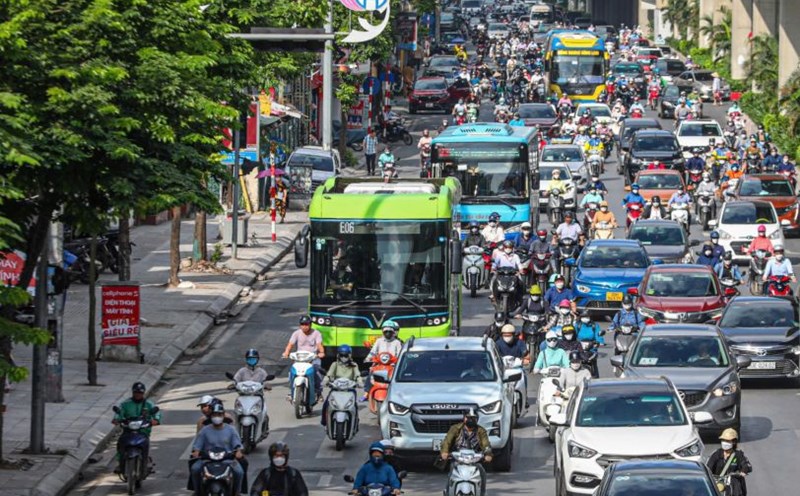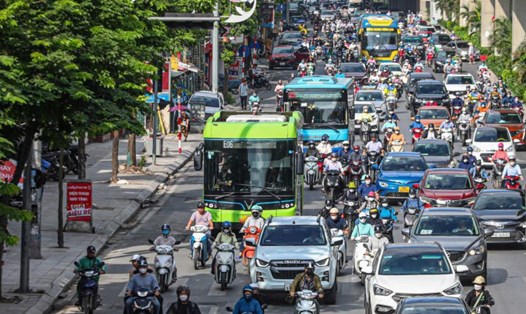At the workshop "Green transformation and breakthrough in attracting industrial investment in Hue City" recently organized by the Hue City People's Committee, Associate Professor, Dr. Tran Dinh Thien, former Director of the Vietnam Economic Institute, gave a very good and accurate example, touching the core of green transformation.
He said in a clear way: A country or locality that wants to get rich, if it only focuses on poverty reduction, will always be poor. Similarly, to change the economy from "brown" to "green", it is necessary to change the entire structure and system.
Green transformation today is not only an inevitable trend but also a vital factor for all countries and localities - including Hue, which is at the forefront of this process.
In reality, the Vietnamese economy is facing major challenges as the world enters a period of green development - where carbon emission standards become a technical barrier. Enterprises are forced to invest in clean technology, sustainable production processes and ensure transparency in the supply chain.
If we do not adapt quickly, we risk being pushed out of the global playground. However, with 96% of small and medium-sized enterprises, limited in capital and technology, the question is: who will be the leader in the journey from "brown" to "green"? Can small businesses operate on their own in an environment with many constraints and lack of flexibility?
From there, Associate Professor, Dr. Tran Dinh Thien made a bold recommendation: it is necessary to pilot the mechanism of "self-making, self-determination, self-responsibility" in localities with aspirations and potential to take the lead in green transformation.
According to experts, Hue is meeting all the conditions to experiment with such policies. Hue City currently has 2 economic zones, 6 industrial zones and dozens of industrial clusters in operation.
Not only has basic infrastructure, Hue also possesses a strategic position on the East-West economic corridor, along with natural landscapes, heritage ecosystems and special cultural identity - great advantages for developing ecological industry, industry associated with tourism and circular economy.
In recent times, Hue City has taken many concrete steps to realize the green strategy. For example, the Gilimex Hue Industrial Park with over 460 hectares is being invested in an international standard wastewater treatment system; the Chan May - Lang Co Economic Zone has attracted 55 projects, including 15 FDI projects towards sustainable development.
Most recently, the People's Committee of Hue City has issued a plan to convert public transport to clean energy, setting a target of having electric car charging stations in all communes and wards by 2030; 100% of new buses using electricity; and 60% of taxis switching to electric cars.
Not stopping there, the city also has a policy of supporting people to convert vehicles from fossil fuels to clean energy, to avoid disruption of life and production.
These moves demonstrate strong political determination and serious participation from the government - a key factor in building an effective green transformation model.
However, for this process to take place on a large scale and sustainably, Hue needs to quickly adjust policies that are no longer suitable, create breakthroughs and empower places with capacity and aspiration to act.
The mechanism of "self-making, self-determination, self-responsibility" needs to be concretized by a transparent legal framework, ensuring budget autonomy, self-determination in industrial space planning, attracting green investment, and especially proactively in building credit, tax and human resource training programs in line with the goal of green development.
If the pilot is successful, Hue can completely become a national model for transforming the growth model - from a resource-consuming model to a model based on creativity, energy efficiency and heritage conservation.
At that time, Hue was not only a heritage city, but also a pioneer city of the "heritage green economy" - a development that did not eliminate identity but elevated identity into a sustainable competitive advantage.








